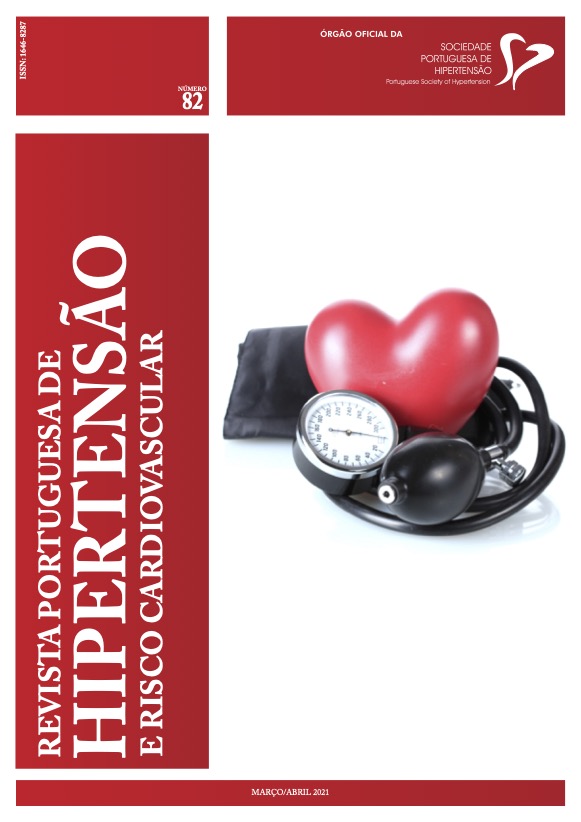IMPACT OF CHRONOTHERAPY ON HYPERTENSION MANGEMENT: INVESTIGATION PROTOCOL IN ATTEMPTING OF CLARIFICATION
DOI:
https://doi.org/10.58043/rphrc.34Abstract
Introduction: Arterial hypertension is an important risk factor for cardiovascular events, such as acute myocardial infarction or stroke. Chronotherapy consists in using daily (circadian) or monthly hormonal rhythms to treat diseases, enhance the effects of medications and minimize iatrogenesis. It is, however, a poorly explored area, although there is evidence that chronotherapy might be useful in the treatment of hypertension.
Primary objective: To evaluate the clinical interest of chronotherapy in the treatment of hypertension.
Type of study: Multicentric, observational, cross-sectional and analytical.
Research questions: Is the blood pressure pattern (dipper, non-dipper), assessed over 24 hours, conditioned by the time of administration of antihypertensive drugs (evening vs. morning)? Is blood pressure control conditioned by the time of administration of antihypertensive drugs (evening vs. morning)?
Methodology: The information will be collected from patient’s clinical computerized process, namely the hypertension pattern (dipper or non-dipper), obtained by ABPM.
Patients who do not have a characterization of their hypertension pattern by ABPM, will be asked to do so, in order to fulfill the conditions to integrate the study.
Patients will be divided into two study groups, each with 200 patients, that is, 400 patients in total. In group A there will be patients who follow a therapeutic plan with anti-hypertensive medication administered in the afternoon and in group B, there will be patients who follow a therapeutic plan with anti-hypertensive medication administered in the morning.
Results: It will be used a quantitative method. The p value defined for considering a statistically significant result will be p <0.05.
Conclusion: The circadian rhythm of blood pressure is particularly relevant in medicine; however, it remains a concept often ignored. Thus, it becomes necessary to raise awareness of its importance in clinical practice, in order to better understand the mechanisms of the disease, and to be able to provide more effective and advantageous forms of treatment for patients, being that the greatest purpose of this research protocol.
Downloads
References
HERMIDA, Ramón C. et al. - Chronotherapy improves blood pressure control and reduces vascular risk in CKD. Nature Reviews Nephrology. 9 358-368. 2013
HERMIDA, Ramón C. et al. - Chronotherapy with conventional blood pressure medications improves management of hypertension and reduces cardiovascular and stroke risks. Hypertension Research. 2015.
A global brief on hypertension, World Health Organization, 2013.
POLONIA, Jorge – Prevalence awareness, treatment and control of hypertension and salt intake in Portugal: Changes over a decade. The PHYSA study. Journal oh Hypertension, 2014.
SAYK, Friedhelm; et al. – To dip ou nor to dip. Hypertension AHA, 2019
HALL, John E.; JOEY, P.; HALL, Michael E. - Physiology and Pathophysiology of Hypertension. In: Seldin and Giebisch’s the Kidney. 5a Ed. USA: Academic Press, 2013. p.1320-1350.
HERMIDA, Ramón; et al – Hypertension: New perspective on its definition and clinical management by bedtime therapy substantially reduces cardiovascular disease risk. Clinical Investigations Journal Foundation, 2017.
KARIO, Kazoumi; et al – Morning surge in blood pressure as a predictor of silent and clinical cerebrovascular disease in elderly hypertensives. Circulation, 2003.
HASSLER, Christopher; BURNIER, Michel - Circadian Variations in Blood Pressure: Implications for Chronotherapeutics. American Journal of Cardiovascular Drugs. 2005
HERMIDA, Ramón C.; AYALA, Diana E.; PORTALUPPI, Francesco - Circadian variation of blood pressure: The basis for the chronotherapy of hypertension. Advanced Drug 32 Delivery Reviews. 59. 2007
STRANGES, Paul M. et al. - Treatment of Hypertension With Chronotherapy: Is It Time? Annals of Pharmacotherapy. 49:3 (2014) 1-12.
PRESS, Dove - Antihypertensive therapy: nocturnal dippers and nondippers . Do we treat them differently? Vascular Health and Risk Management. 2013
CHENG, Mei et al. - The effect of continuous nursing intervention guided by chronotherapeutics on ambulatory blood pressure of older hypertensive patients in the community. Journal of Clinical Nursing. 23. 2014
BARATA, P. et al. - Cronoterapia: estratégia futura para a libertação de fármacos. Acta Farmacêutica. 2011





